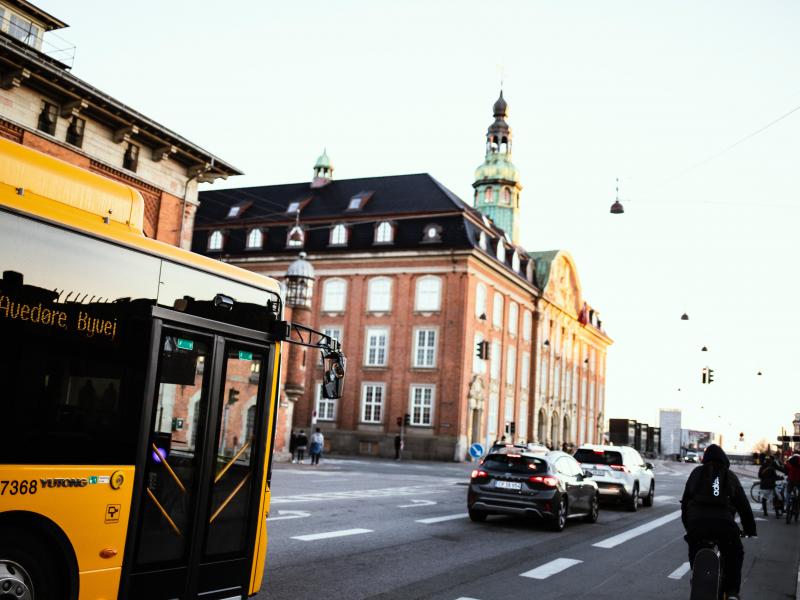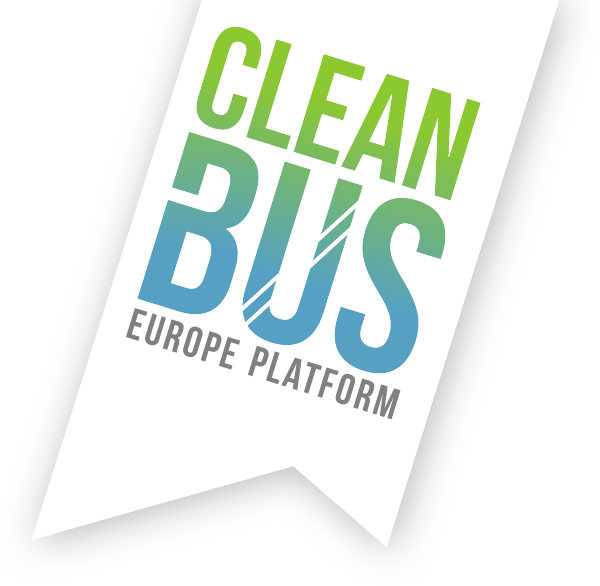Interview: how Movia is realising the green transition in Copenhagen

In Copenhagen, one of the CBEP’s Host Cities, there is a strong commitment towards a green transition of bus services. In collaboration with its owners, public transport agency Movia has formulated a Mobility plan setting out the target to realise this transition. The Clean Bus Europe Platform sat down with Victor Hug, Technical Project Manager, to discuss how Movia is moving forward with clean bus deployment, the challenges they are tackling, and their upcoming Study Tour.
Movia has set a target of switching all city buses to fossil free fuels by 2030 – can you tell us a bit more about the strategy and what will be done to achieve this goal?
As a part of Movia’s 2020 Strategic Mobility Plan, Movia set out the target for 2030 for all our municipalities: All buses must use fossil free fuels and at least 50% will be zero emission. Movia tenders out all bus services to private operators. Our tenders include long contracts – contracts with a total length of up to 14 years. For all long contracts, we now require zero emission bus services. If we need contracts with shorter length, it is an option to ask for diesel services. These contracts all terminate before 2030, which will allow us to ensure the transition of the entire bus fleet in time to reach our target.
A couple of years ago, we also asked for fossil free bus services (biomethane, HVO or biodiesel). These alternatives are today no longer relevant for us as our owners prefer zero emission buses. We get very competitive prices for zero emission bus services which render this a financially attractive solution. Today 25% of our operators’ buses are electric. Next year, we will reach 48% and by 2030, we expect more than 90% of all buses to be zero emission. So far, the transition to zero emission drives has been a great success.
What do you consider some of the challenges in advancing in the upscale of clean buses?
The cost for an electric bus is the double as a similar diesel bus. In addition to this, the operator must make significant investments in power supply and charging infrastructure at the bus depot. The last year’s significant rise in interest rates has increased the capital costs quite significantly. We have a tax break on electricity to electric buses in Denmark. The tax break is important for reducing the operating costs for e-buses.
One of the operators’ biggest concerns is to get the needed power supply and charging infrastructure timely installed at the bus depot. It normally takes around 12 months for the grid company to provide the required power supply. In some cases, the work was just completed in due time for the operator to commence the bus services at the agreed date.
The Danish climate is well suited for e-buses. Most of the year, the e-buses’ range is not affected by extreme temperature; the winter is not too cold, and the summer is not too hot. Though, most of our e-buses are equipped with a diesel heater that is used on cold days. We encourage the use of zero emission heating systems in our tenders.
When we initiated our transition to e-buses, we started by cherry picking urban routes with a modest daily mileage. Gradually, we included more challenging routes and today we are tendering out route 600S which has the longest routing with many high-mileage bus runs. We expect that it will require extra buses compared with diesel operation and it will be more expensive. However, all operators agree that even on this route depot charged buses will be the best solution – possible combined with plug-based opportunity charging at the terminals.
How do you consider an initiative such as the Clean Bus Europe Platform can help these – and other – challenges?
We think that is very important to learn from other’s experiences. When we started to tender out zero emission bus services, we discussed with our Scandinavian colleagues on how to do this wisely. We have learned a lot and gradually changed our tender requirements. It is a process where you as a PTA must understand your operators and how they perceive risk. If your tender documents manage the operator’s risk purely, you may face heavy risk premium in your tenders.
Can you tell us a bit about the upcoming Study Tour in Copenhagen?
We will present our experiences with tendering e-bus services. We will particularly focus on what we do to mitigate the operators’ risks. We will also talk about the transition of our demand responsive transit to electric cars, and our work with developing e-BRT in Copenhagen. There will be a technical visit at one of the operator’s e-bus depots and we will hear about the operators’ experiences with using electric buses.
